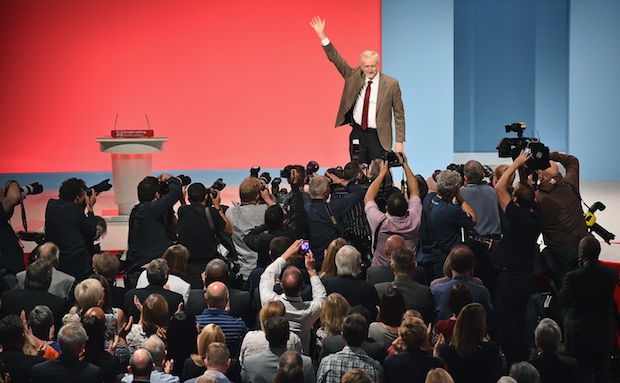Arnie Graf was, for a little while, the man who was supposed to rebuild the Labour party after its 2010 defeat. He was a famed community organiser from the US, brought over by Ed Miliband to have a go at revitalising is party. Graf didn’t last, but last night he spoke about his experiences with the Labour party, and what he thought of the current surge in membership under Jeremy Corbyn.
This was his first brush with proper party politics, and while Graf had clearly enjoyed the work he’d done in building up the party in small local areas with community meetings, he said ‘I wouldn’t come back to it where the party is now’. But surely the surge in membership was exactly what someone like him, keen to organise groups of people, was after? Graf didn’t agree:
‘It feels more like a, well I’m free to speak now, I don’t work for the party. In the 1960s, at our universities, in the anti-Vietnam war movement, this surge feels like that to me. It feels, I don’t want to be overly harsh, but part of it feels like student politics to me. It doesn’t feel like people who are trying to become the government. ‘It feels pretty narrowly based. There’s excitement, I can appreciate that, but I don’t see, it’s not the kind of politics that I would be interested in.’
He added:
‘I don’t think what they’ve done is not legitimate: people should participate, participate in what they care about and their values. I’m glad to see them participating. I just… If Barack Obama refused to sing the National Anthem in the United States, he wouldn’t make it. He’d probably be impeached. I mean, I think you have to embrace some of the traditions and love your country and the people who fought for it. I don’t think that’s left or right, I think that’s just understanding where you are.’
The reason Labour didn’t win was because it didn’t engage, he said, adding that politicians were just not meeting enough new people each week and were ‘patronising’ voters by turning up on their doorsteps and telling them what their interests were rather than bothering to find out if their assumptions about those voters were true:
‘I said to a few of the Labour people I’ve seen in the last two days, who are you know old friends of mine: if you don’t like what happened in the Labour party, it’s really your fault. You were not engaged with the people in your country and when you were, it was so transactional and you were trying to convince people of something rather than being in a conversation with people.’
Corbynites might dismiss Graf as someone who was involved, even to less of an extent than he might have liked, in the failed Miliband project to get Labour back into power. But from what he set out in his conversation with Danny Kruger to an audience in Winchester, it sounded as though Graf needed a decade working with Labour, not a couple of years. His prescription of listening to communities and allowing them to responsibly draw up the policies they need also sounds messy and lengthy: two things that no matter how effective are not rewarded by the way parties prepare for elections.







Comments